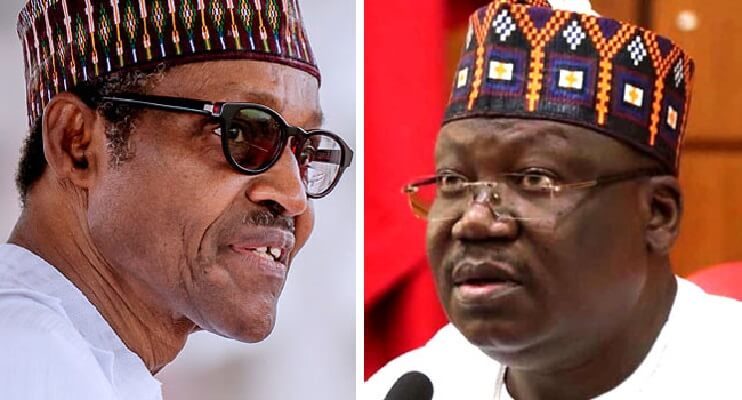The ninth Senate will approve President Muhammadu Buhari’s $29.96 billion foreign loan request, Senate President Ahmad Lawan said on Monday.
Lawan explained that the 8th senate rejected the 2016-2018 external borrowing plan because “there were no sufficient details” when President Buhari sent it to the upper chamber in 2016.
Advertisement
Speaking to journalists in Abuja, Lawan said the Senate will now approve the loan request because “the executive has learnt its lessons.”
He said, “The question of whether we will pass the loan request of the executive arm of government, Yes! If we don’t have money and you have projects that after you build them will not only provide infrastructure that you need but also spin money.
“But one thing is we are going to be critical that every cent that is borrowed is tied to a project. These are projects that will have spillover effects on the economy and we will undertake our oversight so well to ensure that such funds are properly, prudently, economically and transparently are applied on those projects.
“In 2016, the senate did not pass the loan request of the executive at that time and the reason was because there were no sufficient details.
Advertisement
“I want to inform this gathering and indeed Nigerians that the letter conveying the loan request of the executive came with every possible detail.”
The Senate President also said the 9th senate had passed six bills out of which four are of private members.
“Within the first six months of its inauguration, the ninth senate has passed six bills into law, four of them members’ bills. The first of these bills is the Deep Off-shore and Inland Basin Production Sharing Contracts Act CAP D3 LFN 2004 (Amendment Bill, 2019,” he said.
“The two executive bills that we passed are the appropriation bill, 2020 and the finance bill 2019.
“We passed the finance bill, 2019 on 21 November, 2019. The bill amended seven existing tax and fiscal policy laws (Companies Income Tax Act, 2004; Value Added Tax Act, 2007; Customs and Excise Tariff (Consolidation) Act, 2004; Personal Income Tax Act, 2007; Capital Gains Tax Act, 2007; Stamp Duties Act, 2007; and Petroleum Profit Tax Act, 2004) to reform Nigeria’s tax system for enhanced implementation and effectiveness.”



